Recently, the table tennis world has been in an uproar! Big names like Fan Zhendong, Ma Long, and Chen Meng, who are hot favorites for the grand slam titles, have collectively decided to give up their world rankings due to new regulations from the International Table Tennis Federation (ITTF). This unprecedented move in the international table tennis arena has left many fans both regretful and puzzled: why are these top athletes willing to relinquish their hard-earned world rankings? Is this a painful transition from rule "revolution," or is it a complete disaster? With the introduction of the new rules and the protests from top athletes, the table tennis world seems to be facing a storm.
In fact, these top athletes are busy dropping their rankings not because their competitive form has declined, but because of the "high load" imposed by the new rules. The ITTF requires players to participate in more matches throughout the year; otherwise, they will face fines or even harsher penalties. At first glance, this seems somewhat akin to a "996" schedule, which the players' bodies cannot endure!
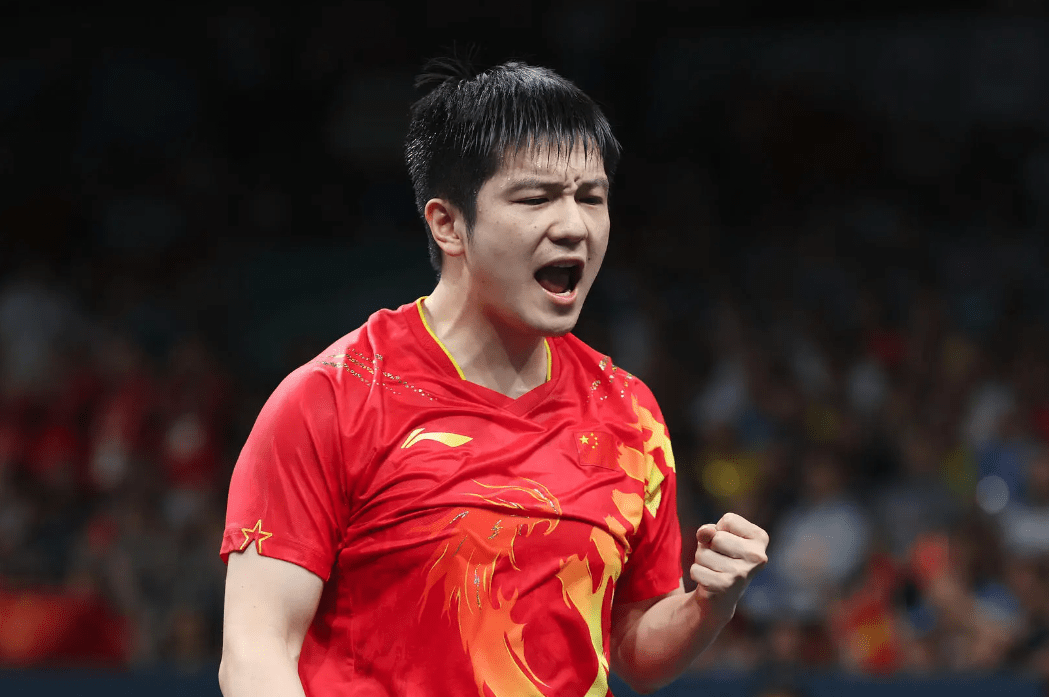
For Fan Zhendong, this "withdrawal from ranking" was also a helpless move, but it did not affect his outstanding performance on the court. At the Paris Olympics, Fan Zhendong sealed his legend with a series of remarkable performances.
He first defeated Japanese star Tomokazu Harimoto with lightning speed and then overcame Swedish rising star Truls Moregard in the final, breaking through layers of obstacles to successfully win the Olympic singles championship. Moreover, this victory made him a historic figure who completed the "singles grand slam" of the World Table Tennis Championships, World Cup, and Olympics, becoming another legend in Chinese table tennis.
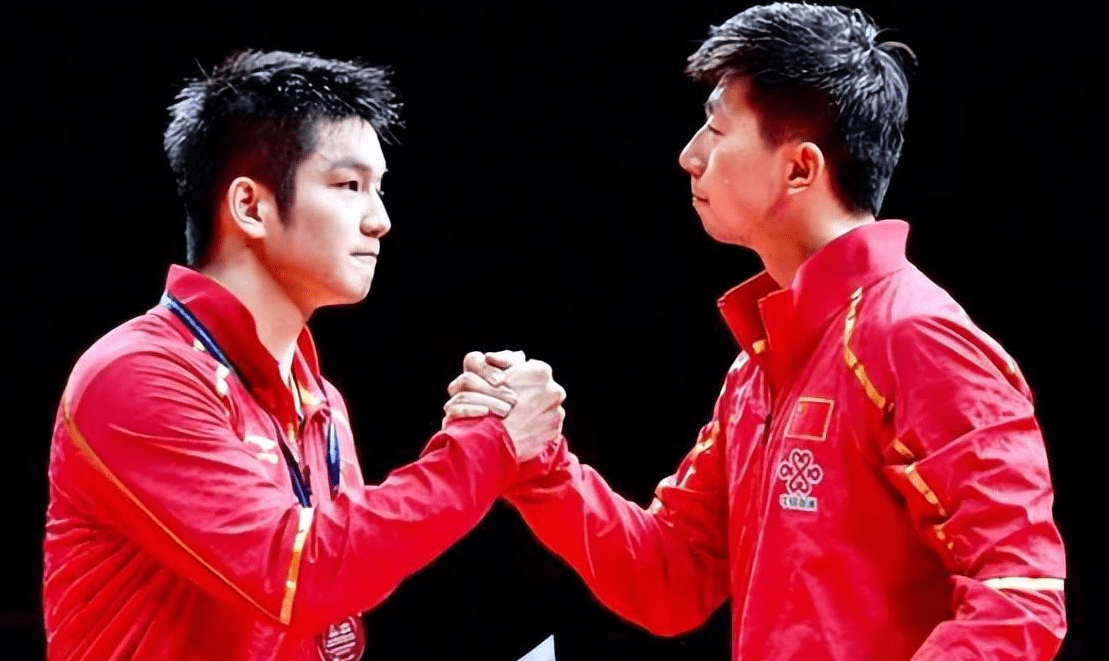
But do you know? Achieving the grand slam is only superficially glorious. As early as the 2019 World Table Tennis Championships, Fan Zhendong demonstrated his strong mental quality and super willpower. At that time, his match against German player Dimitrij Ovtcharov was fiercely contested, with the score tied at 3-3.
Ultimately, Fan Zhendong won the tough battle with perfect tactical adjustments and strong pressure resistance. These moments of "reversing desperate situations" made him a representative of the new era of national table tennis, but behind the glory lies endless pressure and pain—ultra-high frequency competitions and training caused his body to start "alerting."
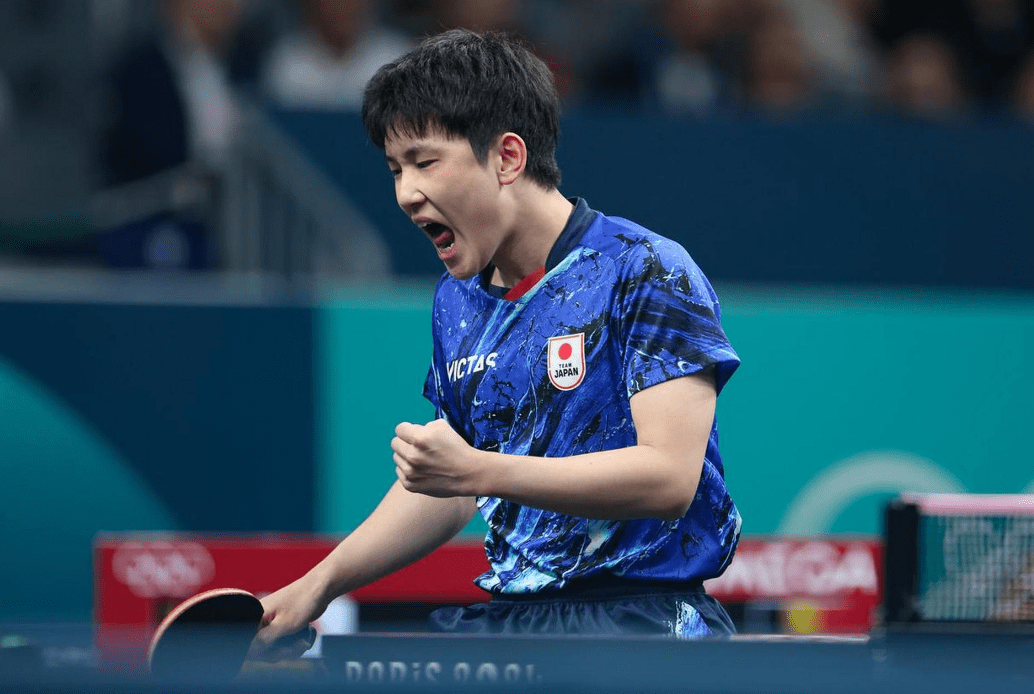
Speaking of another legend—Ma Long, his career is like an intriguing motivational book. From the "Little Fatty" at the beginning of his career to the current "Big Brother" position, he almost stands at the pinnacle of table tennis. In the men's team final at the Paris Olympics, Ma Long led the Chinese team to easily defeat strong opponents, helping China win the Olympic men's team title for the fifth consecutive time.
This made him the first Chinese athlete in sports history to win six Olympic gold medals. What does six gold medals mean? Looking at the entire history of Chinese Olympics, it could probably rank among the "Immortals List."
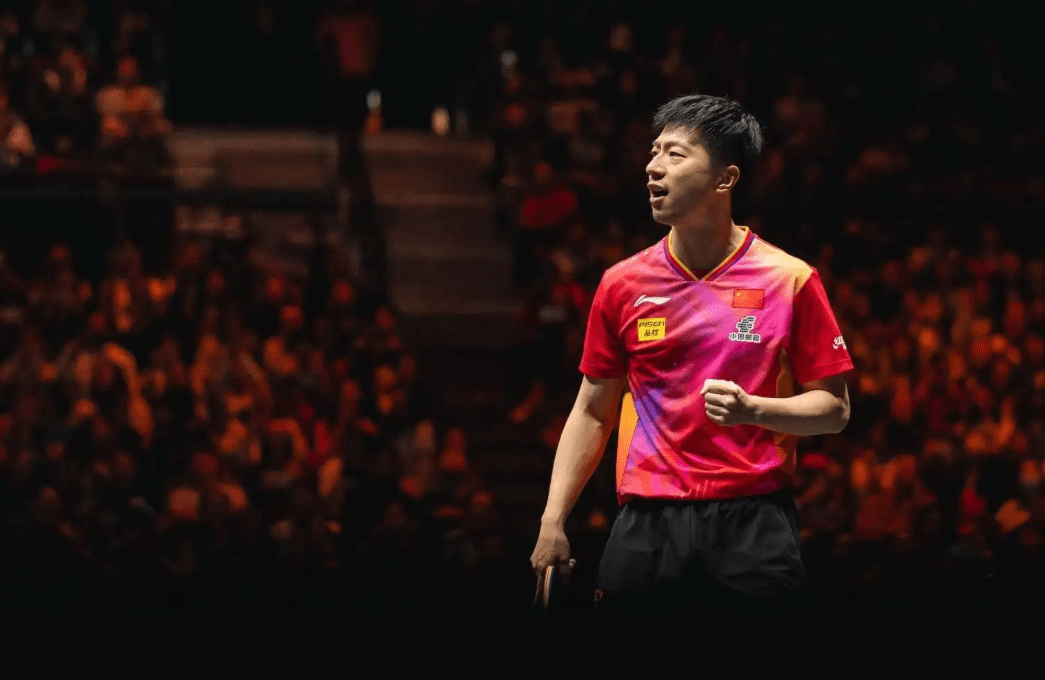
However, behind these highest honors, we must not forget that Ma Long once "raced against fate." In 2018, he underwent surgery due to continuous knee injuries, and almost everyone thought that "Brother Long" might retire. But what happened? He insisted on returning in the 2019 Budapest World Table Tennis Championships with a leg that had not fully recovered and won the men's singles championship, telling the world with practical actions: "I can still do it!" This powerful spirit is both a symbol of the national table tennis spirit and a reflection of his personal will.
Similarly, Chen Meng's career is filled with highlights and controversies. Who can forget the scene where she overpowered Sun Yingsha to win the women's singles gold medal at the Tokyo Olympics? At the Paris Olympics, she continued her invincible state and successfully defended her singles championship. However, no matter how brilliant the competitive achievements are, they cannot stop the flood of public opinion.
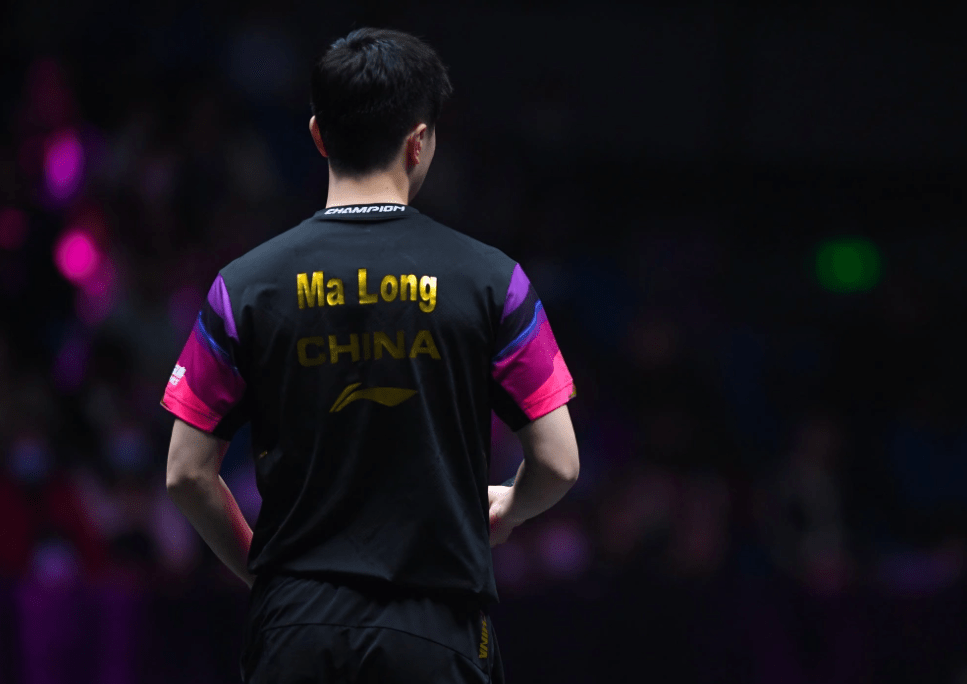
Some of her remarks and interactions with fans have caused considerable controversy, and she has even been jokingly referred to by some fans as suffering from "post-peak syndrome." Regardless, the crown of a champion is never just about enjoyment; it is also a heavy burden.
Even more unexpectedly, beyond the "three domestic giants," the table tennis world is quietly changing. The pattern where China, South Korea, and Japan monopolized high-level events is being broken by new stars from various countries. Swedish player Truls Moregard, who emerged in the Paris Olympic finals, reminded fans of the era when Waldner dominated the table tennis world.
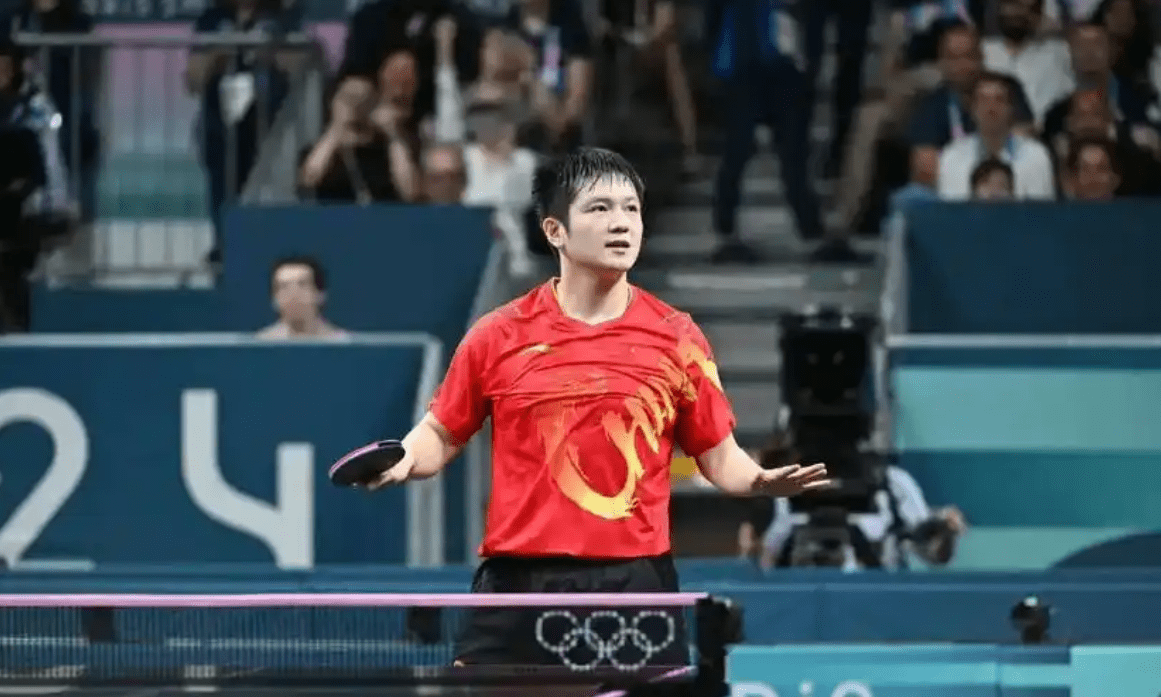
As a fierce rival of Fan Zhendong, Tomokazu Harimoto has grown at a speed comparable to a "rocket launch." This Japanese table tennis star, who became the "youngest player" in the top four of the World Table Tennis Championships in 2018, is not only a dark horse on the international stage but also puts considerable pressure on the national table tennis team.
If the withdrawal of these prominent figures is intended as a "protest," then the intentions of the ITTF are also a topic of heated discussion. Under the guidance of the new fine regulations, the main purpose of the World Table Tennis Corporation (WTT) is undoubtedly to make the events more commercialized, attract more international attention through frequent competitions, and elevate the global influence of table tennis. But is such top-level design really applicable? Don't forget that the key to keeping the sport "alive" relies on the support of the athletes, not on a "force-feeding" schedule that relies on data activity.
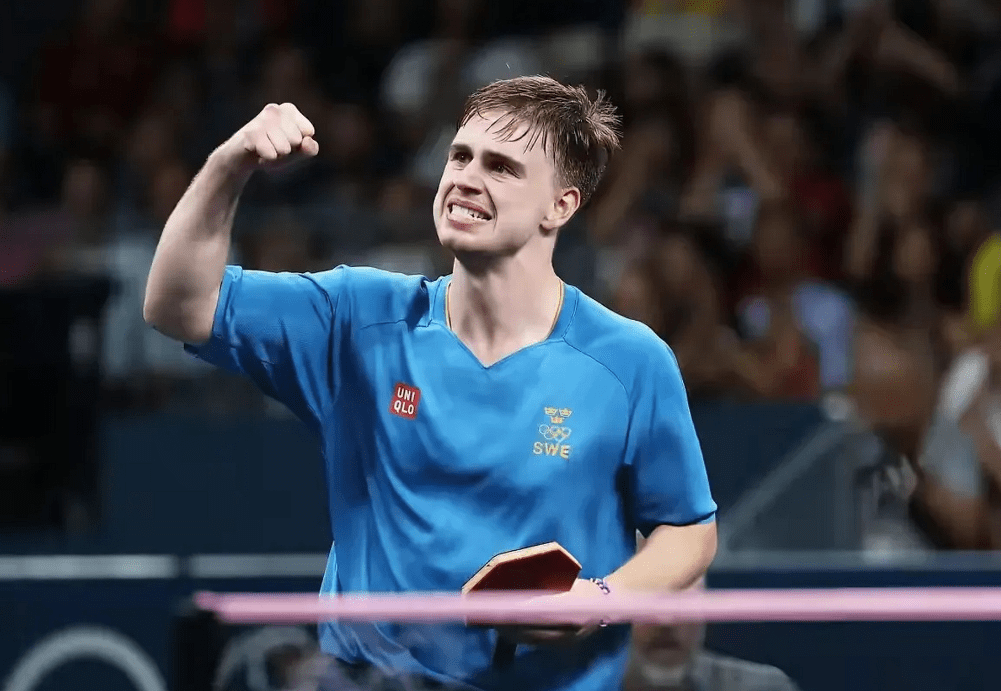
To balance the contradictions, the ITTF has also urgently established a special working group and plans to set up a "player forum" during the Singapore Grand Slam to fully listen to the opinions of the athletes. These measures undoubtedly show the ITTF's attempt to repair relations and also prove the influence of top athletes.
On this point, one must admire Liu Guoliang's ability. This spiritual leader of table tennis has not only repeatedly achieved remarkable results while leading the Chinese team but also played the role of an "international mediator" on some key issues. This time, he actively mediated personally, providing more athletes with opportunities to express themselves and promoting collective decision-making by the ITTF, seeking a better ecosystem for all practitioners.

So, how should table tennis develop in the future? Some say they hope the ITTF will stop "making trouble" and give both athletes and fans a chance to catch their breath; others believe that the rise of the new generation is a challenge, and we should cherish athletes like Fan Zhendong and Ma Long, who uphold the ceiling of national table tennis.
Amidst these controversies, one thing is undeniable: Chinese athletes are no longer just medal harvesters; their influence is also an important force in shaping the culture and reform of the sport. It is this spirit that keeps the world of table tennis from ever ignoring the presence of national table tennis.

The careers of Fan Zhendong, Ma Long, and Chen Meng are a ray of light in the history of table tennis development, and these lights illuminate the future of table tennis as well.
(Disclaimer: The processes and images described in the article are sourced from the internet. This article aims to promote positive social energy without vulgar or inappropriate content. If there are any copyright or personal infringement issues, please contact us immediately, and we will delete the content in question! If there are any questionable parts of the event, we will delete or make changes after contact.)